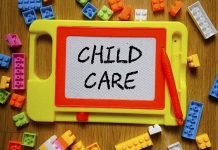In this Article
It is well known that brain development of young ones is greatly affected by early education. Children learn best when they are not pushed too hard and when they are given space for creativity. As a result of this, many parents take preschool seriously and resort to spending more time with their children in order to teach them the things they feel they need to learn. This has been found to be very helpful for a child’s higher education.
What Exactly is Early Childhood Education?
Early childhood education is basically for children between the ages of three and five. It is more commonly referred to as preschool, pre-kindergarten, daycare, nursery school or simply early education. Despite the different names, they all have the same purpose – to prepare children for elementary school. Giving your children special attention before elementary school helps in giving them a head start for their future.
What is the Purpose of Early Childhood Education?
Early childhood education is similar to a training program given to young children. During class, children will gain the social, emotional, physical and cognitive development needed in order to help them have a brighter future. If done right, early childhood education can help in developing a lifelong love of learning in children.
13 Benefits of Early Childhood Education
The young mind is like a sponge. It has the potential to absorb a great deal of information, making it important for children to have guidance while learning. There are many aspects related to early childhood education, here we have listed out the many benefits:
1. Socialization
Humans are very social beings and the main concept of socialisation takes root in early childhood. In a safe environment away from family, children meet other people of their age, sowing the seeds of ‘socialization’ and ‘friendship’ in young minds. This helps to develop self-confidence in your children by eliminating their shy nature.
2. Cooperation
During this phase, children learn to share, cooperate, take turns and so on. These are all part of a secure social life. This is especially beneficial for an only child, who is not familiar with having to share things. In the safe environment provided, the child will learn to cooperate with guidance from professionals.
3. Holistic Development
As a human being, it is important to have a strong foundation in every aspect of the personality such as emotional, social, mental and physical. Teachers who handle young children are well trained to identify the weaker aspects of a child and to encourage them to improve through practical sessions. Interaction amongst peers is extremely important in this context.
4. Enthusiasm for Lifelong Learning
Children will develop a hunger for learning if they are taught through fun and exciting activities. This eagerness and enthusiasm for learning will remain with them their entire lives!
5. Value of Education
The new environment provided in preschool gives children an entirely different perspective on the requirement of education. Grasping knowledge and applying them to their lives demonstrates the value of education.
6. Respect
The environment in preschool helps children learn to become civil towards one another and they start to understand that the concept of respect is not just limited to people and belongings, but also to their environment.
7. Teamwork
A person’s teamwork capability is based on their respect for others opinions, listening skills and mentality towards equality. All these qualities should be taught at a young age. Many preschool activities are focused on teamwork and help children improve their attitude towards working as a team.

8. Resilience
Our society is ever changing and it is important to develop resilience as early as possible. The challenging scenarios provided by the professional guides help children to learn through their own experience. The bruises and bumps from their challenges lay the foundation for the better coping strategies for their future challenges.
9. Concentration
The involvement in preschool tasks and activities demands higher levels of concentration from a child. The repetitive occurrence of the activities helps them to improve their concentration skills.
10. Patience
In the life of an adult, patience is often tested and children should be trained to handle such situations for the future. Experiences such as sharing the attention of the teacher, waiting for their turn etc. will help children develop patience.
11. Confidence and Self Esteem
A sense of wellbeing is important for a person to explore their talents. The positive interactions with peers and teachers encourage a positive view of themselves. This is an important impact of early childhood education.
12. Brain Development
Professionally crafted activities in preschool enhance the development of the brain. Various activities involving analysing and logical reasoning help them to develop their skills.
13. Exposure to Diversity
There is so much diversity in the modern world and children need to be taught to appreciate and accept the differences in society.
Each new word, experience and person can mould a young child into the person they will grow up to be. This is because it is possible to have a greater impression on a person during their early childhood days. Most parents understand this and give early childhood education the importance it is due.
Recent studies reveal the importance of early childhood education as it can influence the mental, emotional and physical development of a child. Hence for increasing the quality of the education of your child, ensure early childhood education. So always make sure that they start off early so it doesn’t become a problem in the future.









